 23 citations,
June 2017 in “Drug Design Development and Therapy”
23 citations,
June 2017 in “Drug Design Development and Therapy” Cyclodextrins improve finasteride's solubility and bioavailability for hair loss treatment.
 23 citations,
June 2017 in “Rejuvenation Research”
23 citations,
June 2017 in “Rejuvenation Research” Minoxidil treatment increases aorta elasticity and reduces stiffness in aged mice, potentially helping with age-related heart issues.
 23 citations,
December 2004 in “Seminars in oncology”
23 citations,
December 2004 in “Seminars in oncology” Liposomal anthracyclines are effective and safer for treating multiple myeloma, especially in elderly patients.
 22 citations,
May 2021 in “Nature Communications”
22 citations,
May 2021 in “Nature Communications” Tissue stiffness affects hair follicle regeneration, and Twist1 is a key regulator.
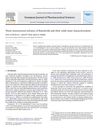 21 citations,
October 2009 in “European Journal of Pharmaceutical Sciences”
21 citations,
October 2009 in “European Journal of Pharmaceutical Sciences” Three new finasteride solvates found, change forms under different drying conditions.
 20 citations,
January 2003 in “Chemical and Pharmaceutical Bulletin”
20 citations,
January 2003 in “Chemical and Pharmaceutical Bulletin” The new progesterone derivatives effectively inhibit 5α-reductase and bind to the androgen receptor.
 19 citations,
November 2017 in “Journal of Pharmaceutical Sciences”
19 citations,
November 2017 in “Journal of Pharmaceutical Sciences” A new gel containing minoxidil can treat hair loss effectively, potentially reducing side effects and improving treatment.
 19 citations,
February 2017 in “Journal of radiation research”
19 citations,
February 2017 in “Journal of radiation research” High-dose radiation speeds up aging in skin stem cells.
 19 citations,
May 2014 in “Molecules”
19 citations,
May 2014 in “Molecules” Avicequinone C, a compound found in the Avicennia marina plant, can reduce hair loss by inhibiting a hormone linked to androgenic alopecia.
 19 citations,
September 1999 in “Talanta”
19 citations,
September 1999 in “Talanta” New method measures minoxidil concentration faster, more accurately, and automatically.
 18 citations,
April 2019 in “Archives of Dermatological Research”
18 citations,
April 2019 in “Archives of Dermatological Research” Lactoferrin helps mice grow hair by increasing cell growth and hair follicle development.
 18 citations,
May 2018 in “International Journal of Molecular Sciences”
18 citations,
May 2018 in “International Journal of Molecular Sciences” Human body's immune cells are more common in the layer of fat just beneath the skin than in deeper fat layers.
 18 citations,
March 2014 in “Drug Development and Industrial Pharmacy”
18 citations,
March 2014 in “Drug Development and Industrial Pharmacy” New gel formulas without ethanol and propylene glycol, containing a minoxidil-methyl-β-cyclodextrin complex, have been created for treating hair loss.
 18 citations,
January 2006 in “Analytical Sciences”
18 citations,
January 2006 in “Analytical Sciences” Method accurately measures minoxidil concentration in medicines.
 18 citations,
June 1999 in “Statistical Methods in Medical Research”
18 citations,
June 1999 in “Statistical Methods in Medical Research” The document concludes that PK/PD modeling is important for determining the safe and effective dosages of drugs.
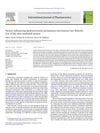 16 citations,
March 2008 in “International journal of pharmaceutics”
16 citations,
March 2008 in “International journal of pharmaceutics” Different factors like pH, gel type, and chemical enhancers affect how well hydrocortisone gets into hair follicles, and less hydrated skin doesn't work well with the test method.
 15 citations,
June 2020 in “Applied Materials Today”
15 citations,
June 2020 in “Applied Materials Today” The SA-MS hydrogel is a promising material for improving wound healing and skin regeneration in diseases like diabetes and skin cancer.
 15 citations,
January 2016 in “Biological & Pharmaceutical Bulletin”
15 citations,
January 2016 in “Biological & Pharmaceutical Bulletin” Bee venom helps hair grow and may work better than some common treatments.
 15 citations,
July 2015 in “Journal of Essential Oil Bearing Plants”
15 citations,
July 2015 in “Journal of Essential Oil Bearing Plants” Thuja orientalis and Thuja occidentalis essential oils have medicinal properties useful for developing treatments with antimicrobial and bioactive effects.
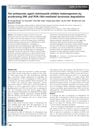 15 citations,
March 2015 in “Experimental Dermatology”
15 citations,
March 2015 in “Experimental Dermatology” Clotrimazole, an antifungal cream, may safely reduce skin pigmentation by breaking down the enzyme needed for making melanin.
 14 citations,
January 2020 in “PloS one”
14 citations,
January 2020 in “PloS one” Timing of light therapy affects horse coat growth, with photoperiod being crucial.
 14 citations,
January 2017 in “Pharmacological Reports”
14 citations,
January 2017 in “Pharmacological Reports” TP0427736 may help treat hair loss by blocking a specific protein and promoting hair growth.
 13 citations,
January 2021 in “Scientific Reports”
13 citations,
January 2021 in “Scientific Reports” Pannexin 3 helps skin and hair growth by controlling a protein called Epiprofin.
 13 citations,
August 2018 in “Journal of Molecular and Cellular Cardiology”
13 citations,
August 2018 in “Journal of Molecular and Cellular Cardiology” Finasteride improves heart function and repairs damage after heart attack in mice.
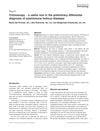 13 citations,
August 2017 in “International Journal of Dermatology”
13 citations,
August 2017 in “International Journal of Dermatology” Trichoscopy helps quickly identify autoimmune diseases on the scalp but should be used with other standard tests.
 13 citations,
March 2017 in “Genomics”
13 citations,
March 2017 in “Genomics” Genomic approach finds new possible treatments for hair loss.
 12 citations,
September 2020 in “Stem cell research & therapy”
12 citations,
September 2020 in “Stem cell research & therapy” Adult skin cell-based early-stage skin substitutes improve wound healing and hair growth in mice.
 12 citations,
July 2017 in “Scientific reports”
12 citations,
July 2017 in “Scientific reports” Researchers developed a way to study human body clocks using hair tissue, which works similarly in both healthy and dementia patients.
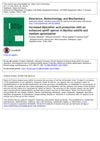 12 citations,
November 2014 in “Bioscience, Biotechnology, and Biochemistry”
12 citations,
November 2014 in “Bioscience, Biotechnology, and Biochemistry” Genetically modifying a bacteria and changing its growth conditions significantly increased the production of a chemical called dipicolinic acid.
 12 citations,
February 2014 in “Recent Patents on Inflammation & Allergy Drug Discovery”
12 citations,
February 2014 in “Recent Patents on Inflammation & Allergy Drug Discovery” Shampoos have evolved into multifunctional products with patented innovations for different hair needs and can include medicinal herbs for hair and scalp health.






























